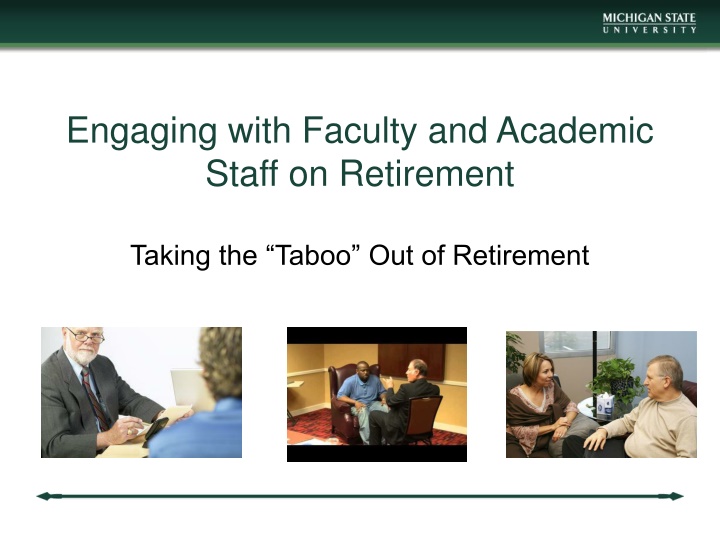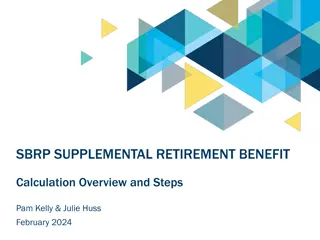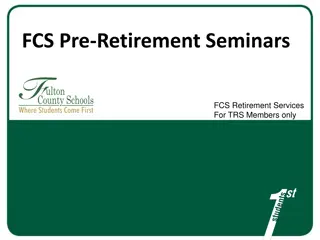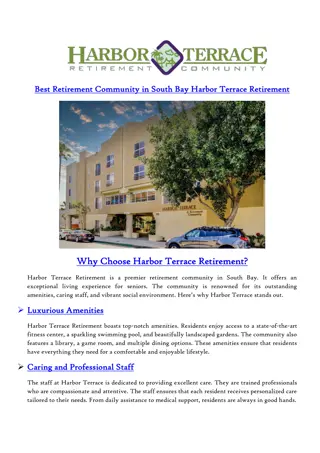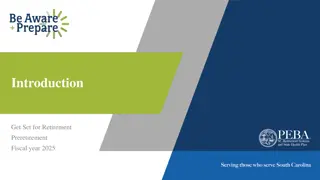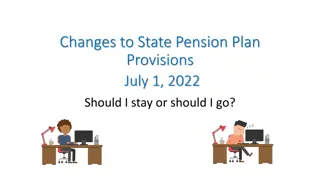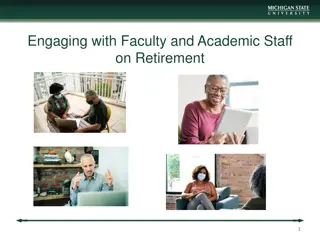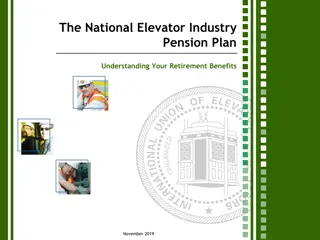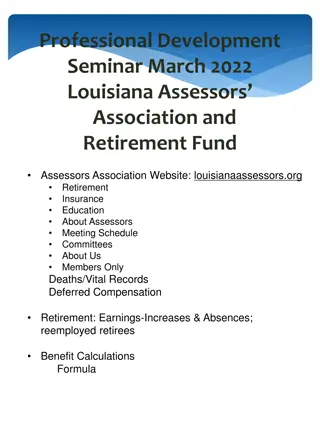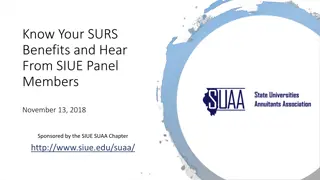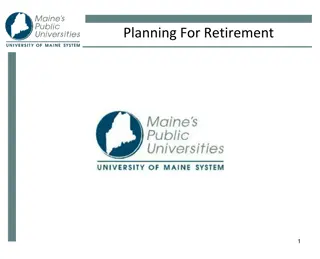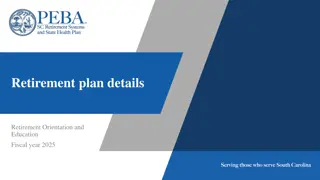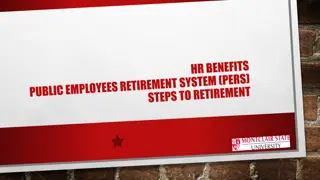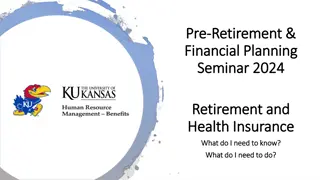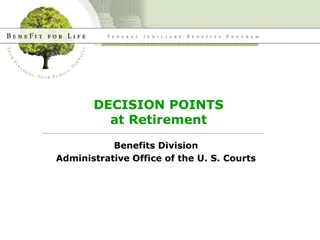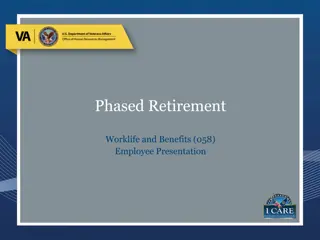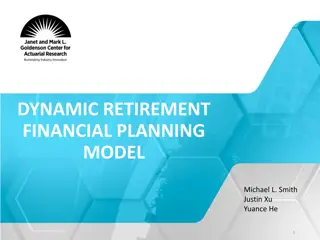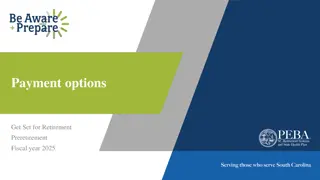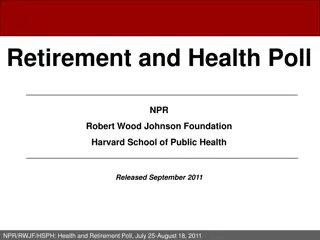Navigating Retirement Conversations in Academic Settings
Retirement in academic settings is evolving, requiring individuals, institutions, chairs, and supervisors to address various challenges, including when to retire, succession planning, and creating intentional retirement options. Initiating and managing retirement discussions can be complex due to legal, financial, and identity issues. This series aims to destigmatize retirement conversations and provide guidance for engaging with faculty and academic staff effectively.
Download Presentation

Please find below an Image/Link to download the presentation.
The content on the website is provided AS IS for your information and personal use only. It may not be sold, licensed, or shared on other websites without obtaining consent from the author.If you encounter any issues during the download, it is possible that the publisher has removed the file from their server.
You are allowed to download the files provided on this website for personal or commercial use, subject to the condition that they are used lawfully. All files are the property of their respective owners.
The content on the website is provided AS IS for your information and personal use only. It may not be sold, licensed, or shared on other websites without obtaining consent from the author.
E N D
Presentation Transcript
Engaging with Faculty and Academic Staff on Retirement Taking the Taboo Out of Retirement
Retirement isnt what it used to be: For Individuals: Since 1994 academic retirement in U.S. is less structured and predictable Complex process placing more responsibility on the individual When to retire? How to retire: All at once or gradually? What to do after retirement? Concern about marginalization Retirement is sometimes a taboo topic: Difficult conversation to begin and manage
Retirement isnt what it used to be: For Institutions, chairs, and supervisors Since 1994, retirement is also more challenging for institutions, chairs, and supervisors How to maintain a steady flow of professional talent without a fixed retirement age? Predictability of staffing changes/Succession planning Continued access to valuable resources when faculty and staff retire Hence, need to be more intentional about designing retirement options & plans
Chairs & supervisors are on the front lines: Starting and managing the retirement conversation is challenging for chairs, supervisors Legal issues Professional identity issues Financial and resource issues Many don t feel well prepared to navigate this terrain
Goal today: Raise the retirement issue for discussion Consider range of issues you may encounter in your role Share information and resources to help you fulfill this important part of your job
ENVISIONING RETIREMENT PATHWAYS: Taking the Taboo Out of Retirement Series Theodore H. Curry II Associate Provost and Associate Vice President, Academic Human Resources Professor, School of Human Resources and Labor Relations
Michigan State University Retirement Policies Emeritus Policy Automatic upon retirement Emeritus suffix is added to highest academic and administrative title Includes Free parking Library privileges Attend Senate meetings and participate in academic processions
Retirement Policies Terminal Consultantship Not an entitlement Available to those hired before January 1, 1992 There may not have been any compensated leaves in the five years immediately prior to retirement 50% effort for 100% salary in final year of employment Must be approved at unit, college, and provost level
Michigan State University Retirement Negotiated agreements in the years leading up to retirement, as well as post retirement, are possible and common Shifting assignment mix Reduced appointment Post retirement appointment Space Work with AHR on questions, examples, and specifics
Panel discussion: Amy Bonomi, Chairperson, Human Development & Family Studies Bill Donohue, Faculty Grievance Officer, Faculty Grievance Office James Kells, Chairperson, Plant Soil and Microbial Sciences Kristine Zayko, General Counsel
MSU WorkLife Office Retirement Webpage http://bit.ly/retirement-resources-faculty
